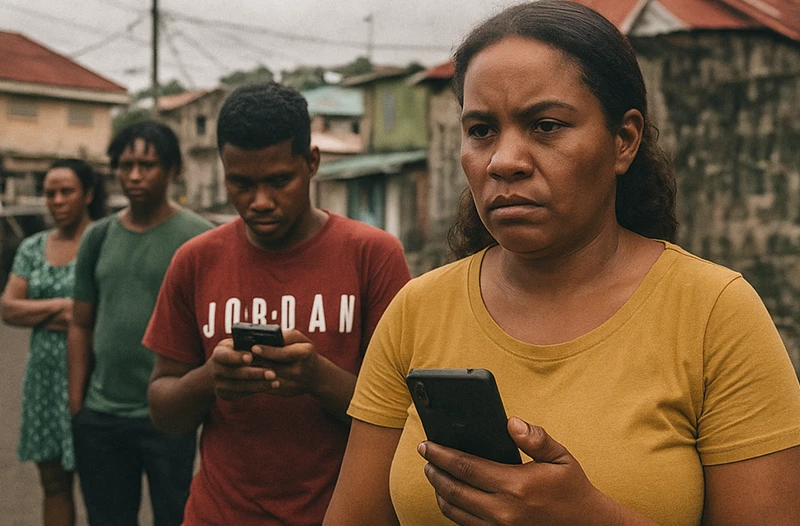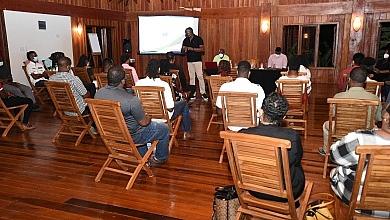Digital Dreams or Delayed Deliveries? Dominica’s Push to Transform Its Economy

It’s been pitched as Dominica’s leap into the future, a bold pivot from traditional models of development to a digitized economy. Led by the Ministry of Public Works and the Digital Economy, this transformation includes everything from e-governance platforms to broadband expansion, digital training programs, and entrepreneurship initiatives. The ambition is clear: to create a resilient, technology-driven state capable of weathering economic shocks and empowering citizens. But behind the buzzwords and ribbon cuttings lies a more complicated reality: can a country still grappling with infrastructure, transparency, and institutional inertia actually deliver on its digital promises?
Connectivity Gains, But Is Access Equitable?
Internet access has improved, especially in urban centers. The government’s partnership with providers has expanded broadband coverage, and public Wi-Fi zones have been rolled out in areas like Roseau and Portsmouth. But in the interior and among rural populations, especially in Kalinago Territory and parts of the southeast, digital access remains spotty or unaffordable. If digital equity is not addressed upfront, the digital economy will mirror and deepen existing inequalities. A laptop program or training seminar is not enough when entire communities are still struggling with power outages or have no reliable mobile signal.
A key part of the government’s plan involves digitizing services: tax filings, business registration, identity verification, and access to public programs. On paper, this promises efficiency and transparency. In practice, many citizens remain hesitant, and for good reason. The lack of robust data privacy laws, limited digital literacy, and past experiences of political manipulation fuel skepticism. Digital platforms built without institutional trust risk alienating the very people they’re meant to empower. As long as information remains politicized, and public records selectively shared, technology won’t change the perception that government only serves a few.
Entrepreneurs and the Innovation Gap
Programs like the Dominica Youth Business Trust and tech accelerators have gained momentum, helping young people explore careers in app development, digital marketing, and e-commerce. However, these efforts are often siloed and underfunded. Successful digital economies are built on ecosystems, including legal frameworks, venture capital access, market linkages, and scalable mentorship. Dominica’s entrepreneurial sector remains underdeveloped. Many talented innovators leave, unable to find support or incentives. Without systemic investment and a cultural shift that values risk-taking and experimentation, the “digital dream” risks becoming a PR slogan, not a real strategy.
Any serious transformation of the economy must begin with education reform, not just access to devices, but curricula that integrate coding, media literacy, data ethics, and digital citizenship from early grades. While some pilot projects have introduced tablets and virtual classrooms, teacher training and curriculum revision have not kept pace. Dominica’s schools still emphasize rote learning, exam prep, and compliance over critical thinking and innovation. Without a reimagined educational model, the next generation will be digital consumers, not digital creators.
What complicates matters further is timing. The digital economy agenda is unfolding amid rising political tension and a deeply polarized society. Critics argue that much of the rollout is performative, photo-ops, pilot programs, and buzzwords designed to signal modernity ahead of the next election. That doesn’t make the projects meaningless, but it does raise the question of priorities. Is the digital economy a national plan or a campaign strategy?
The government speaks of “modernization,” yet electoral reform, public sector accountability, and civic empowerment have seen far less urgency. In that context, digital development risks becoming cosmetic, slicker services but no structural change.
What a Real Digital Economy Would Require
For Dominica’s digital transformation to be more than marketing, several key changes are needed:
- Transparent procurement and vendor selection for all government tech projects.
- National legislation on data protection and cybersecurity to protect citizens’ rights.
- Digital inclusion policies that prioritize remote and disadvantaged communities.
- Investment in teacher retraining and curriculum development to prepare youth.
- Support for broadband cooperatives or local ISPs to democratize connectivity.
- Empowering independent watchdogs and journalists with digital tools.
A true digital economy is not built by government alone. It requires an engaged civil society, critical media, empowered private sector, and trust in institutions. Dominica is not there yet.
Technology won’t fix what politics has broken, but it can create new ways of doing things, if we’re honest about our starting point. The digital dream must be pursued with rigor, not romance. If Dominica is to leap forward, it cannot do so on a platform of exclusion, opacity, or expedience. It must choose to build an inclusive, transparent, and sustainable digital future, one that serves all citizens, not just the connected few.
This article is copyright © 2025 DOM767








